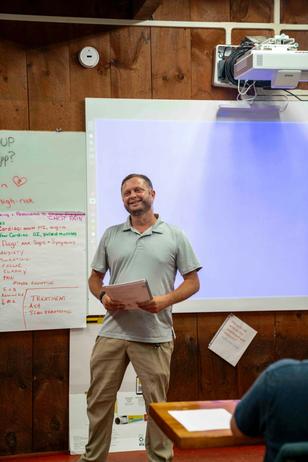Exploring Private School Jobs: Opportunities and Insights in 2025
What is it really like to work in a private school today? How do these roles compare to teaching in public schools? In 2025, private school jobs remain an attractive option for educators and staff seeking small class sizes, mission-driven work environments, and opportunities for professional growth. With rising enrollment, shifting demographics, and new approaches to learning, the landscape of private school employment has never been more dynamic.
This article explores the wide range of private school jobs available, the benefits and challenges of teaching in these settings, and updated insights into salaries, qualifications, and hiring trends.
My Experience Teaching in Private Schools
Over two decades ago, I taught Latin, English, World History, Music, and Computers in private schools. I also served as Deputy Director of a school in The Bahamas. My classes never exceeded 15 students, allowing me to truly know each learner and adjust lessons to meet their needs.
Parents valued the education we provided and supported learning at home. While today’s classrooms face challenges from smartphones and social media, private schools still foster strong parent-school partnerships. Although lesson planning and grading were demanding, the professional satisfaction was unmatched.
Advantages of Working in a Private School
Flexible Curriculum
Unlike public school teachers, who must often “teach to the test” to prepare students for state exams, private school educators have more freedom to innovate. While private schools meet or exceed state academic standards, teachers can take time to explore side topics, foster creativity, and adapt to student interests. As one 2025 Forbes report noted, flexibility in curriculum remains one of the strongest draws for educators seeking private school roles.
Small Class Sizes
According to the National Center for Education Statistics (NCES), the average private school student-teacher ratio in 2023–2024 was 12:1, compared to 16:1 in public schools. Small classes allow for individualized instruction, deeper discussions, and stronger relationships between teachers and students. This setting not only improves learning outcomes but also enhances teacher job satisfaction.
Increased Teacher Safety
Smaller student populations and enforceable codes of conduct contribute to safer learning environments. A 2024 U.S. Department of Education study reported that private school teachers were significantly less likely to experience threats or violence at work compared to their public school counterparts.
Different Kinds of Jobs in Private Schools
Private schools employ a broad range of professionals beyond classroom teachers. Each role contributes to the holistic education and well-being of students.
Teaching Roles
Teachers:
Private school teachers may specialize in one subject or teach across disciplines, particularly in lower and middle grades. They also take on extracurricular responsibilities such as coaching or advising clubs. Salaries vary widely, from $40,000 to $105,000, depending on school type, region, and experience (Glassdoor, 2025).
Teacher’s Assistants:
These professionals support classroom instruction, prepare materials, and work with students individually or in small groups. While salaries are lower than lead teachers, assistants gain valuable experience that often leads to future teaching roles.
Administrative and Support Roles
Admissions Directors oversee recruitment and enrollment strategies.
Development Directors lead fundraising, alumni engagement, and capital campaigns.
Business Managers ensure fiscal health through budgeting and financial planning.
Guidance Counselors support academic planning, college prep, and student well-being.
Social Workers and School Nurses address mental health, wellness, and family outreach.
Media Specialists teach research skills and manage digital resources.
Operations Staff (custodians, maintenance, food service, and transportation) keep the campus safe and functional.
Each position is essential to fulfilling a school’s mission, creating a community dedicated to student growth.
Teaching in a Private School vs. a Public School
Private and public schools differ in several key ways:
Curriculum: Private schools have freedom to choose teaching methods (e.g., Montessori, Waldorf, Classical Christian).
Athletics & Extracurriculars: Participation is often built into the school day, with strong emphasis on well-rounded development.
Discipline: Expectations are clearly outlined in parent-school contracts, leading to fewer disruptions.
Religious Affiliation: Many private schools integrate faith-based education into their mission.
Parental Involvement: Parents often partner closely with faculty, reinforcing academic and personal growth.
These differences make private schools attractive for educators seeking more autonomy, community, and values-driven work.
Hiring Trends and the Job Market in 2025
Private school hiring is robust in 2025. Several trends shape the market:
Rising Enrollment: According to the NCES, private school enrollment has grown modestly since 2020, with particular increases in faith-based and Montessori schools.
STEM and AI Integration: Schools increasingly seek teachers skilled in coding, data science, and artificial intelligence applications.
Diversity and Inclusion Roles: Many schools now employ Directors of Equity or similar positions to strengthen community representation.
Wellness Professionals: Demand for counselors and social workers has surged as schools prioritize student mental health post-pandemic.
As competition for teaching talent grows, private schools offer competitive salaries, housing stipends, and professional development opportunities to attract and retain educators.
Preparing for a Private School Career
For those considering private school jobs, preparation is key:
Credentials: Most schools prefer or require a bachelor’s degree in education or a subject specialty; many also value advanced degrees. State certification is not always required but enhances employability.
Networking: Organizations like Carney, Sandoe & Associates help connect teachers with private schools nationwide.
Interview Process: Candidates should expect in-depth interviews focused on teaching philosophy, classroom management, and community involvement.
Flexibility: Teachers should be ready to take on multiple roles beyond classroom instruction.
Private school jobs reward passion, adaptability, and dedication to student-centered education.
Conclusion: Why Consider Private School Jobs?
Private school jobs in 2025 offer more than employment—they provide the opportunity to work in environments that value innovation, safety, and close-knit communities. Whether as a teacher, administrator, or support staff, professionals in private schools contribute to shaping well-rounded, engaged students.
For educators seeking meaningful work, small class sizes, and professional growth, private schools remain a compelling career choice.












